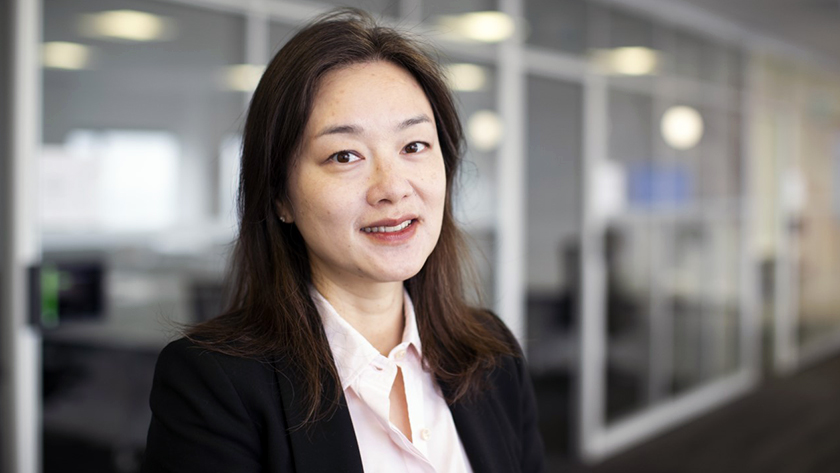
Researchers at The Institute for Education Research (TIER) are using artificial intelligence (AI) to improve virtual cancer care and patient well-being.
A cancer diagnosis can have a profoundly harmful effect on an individual’s mental health. Virtual care platforms, such as online support groups, are a convenient and cost-effective tool for reducing emotional distress.
UHN’s de Souza Institute offers CancerChatCanada, a therapist-led, text-based support group for cancer patients that features an AI-based co-facilitator (AICF). This tool processes the language that participants use in session chats to provide customized online resources that are tailored to their particular needs.
Dr. Yvonne Leung, a TIER Education Investigator, explains that her team developed the AICF to quickly identify participants who are at increased risk of emotional distress and to automatically share online resources with them following each session.
“The AICF scans session chats in real-time to monitor patients’ engagement and to detect keywords that signal emotional distress. If the system detects a participant at risk, it alerts the therapist,” says Dr. Leung. “The system also creates profiles for each participant following the sessions to help the therapist assess their emotional trajectories and psychosocial health.”
Developing the AICF was a complex, multi-step process. The group started by training the AI on a collection of chat sessions—approximately 80,000 messages in total. They then taught the system a list of common keywords related to psychosocial concern, such as ‘anxiety’ and ‘depression’. The AI used this information to identify related words and expressions, building a large vocabulary list that it could use to detect psychosocial distress. Once the AICF identifies a user that is at risk of psychological harm, the system uses a concern-response algorithm to determine the most appropriate resource from a curated bank of online tools and websites.
“A critical element of training any AI system is providing feedback—telling the AI what it is doing right and what needs to change,” explains Dr. Leung. “We went through multiple rounds of human evaluation and feedback to improve the AICF’s performance before we tested it in live support group sessions.”
Across five sessions involving 48 participants, the AICF did an excellent job of detecting at-risk patients and recommending suitable resources. Over 50% of patients accessed at least one of the resources that the AICF recommended to them, and 75% of these patients found the resources useful.
“We have shown that our AICF can personalize online support and improve care for cancer patients without increasing therapists’ workload,” says Dr. Leung.
Beyond demonstrating the usefulness of the AICF, this study identified strengths and weaknesses of the system, which will help the team to optimize it for future applications. According to Dr. Leung, “Cancer care is just the start—AI systems could enhance online support for all sorts of patient populations. We have incredible technological resources at our disposal, and we are ready to use them to provide holistic care to our patients, wherever they are.”
Next steps for this research include using an interactive chatbot to provide patient education as an on-demand support. Patients can ask specific questions related to their cancer and an AI-based recommender system will bring them to a relevant online resource.
This work was supported by the Ontario Institute for Cancer Research - Cancer Care Ontario Health Services Research Network and the UHN Foundation. Dr. Yvonne Leung is an Adjunct Lecturer in the Department of Psychiatry at the University of Toronto.
Leung YW, Park B, Heo R, Adikari A, Chackochan S, Wong J, Alie E, Gancarz M, Kacala M, Hirst G, de Silva D, French L, Bender J, Mishna F, Gratzer D, Alahakoon D, Esplen MJ. Providing Care Beyond Therapy Sessions With a Natural Language Processing-Based Recommender System That Identifies Cancer Patients Who Experience Psychosocial Challenges and Provides Self-care Support: Pilot Study. JMIR Cancer. 2022 Jul 29. doi: 10.2196/35893.

During the COVID-19 pandemic, virtual care became an essential mode of health care delivery. Support groups are now following this model, which is helping to improve access to psychosocial care for patients and their families.




